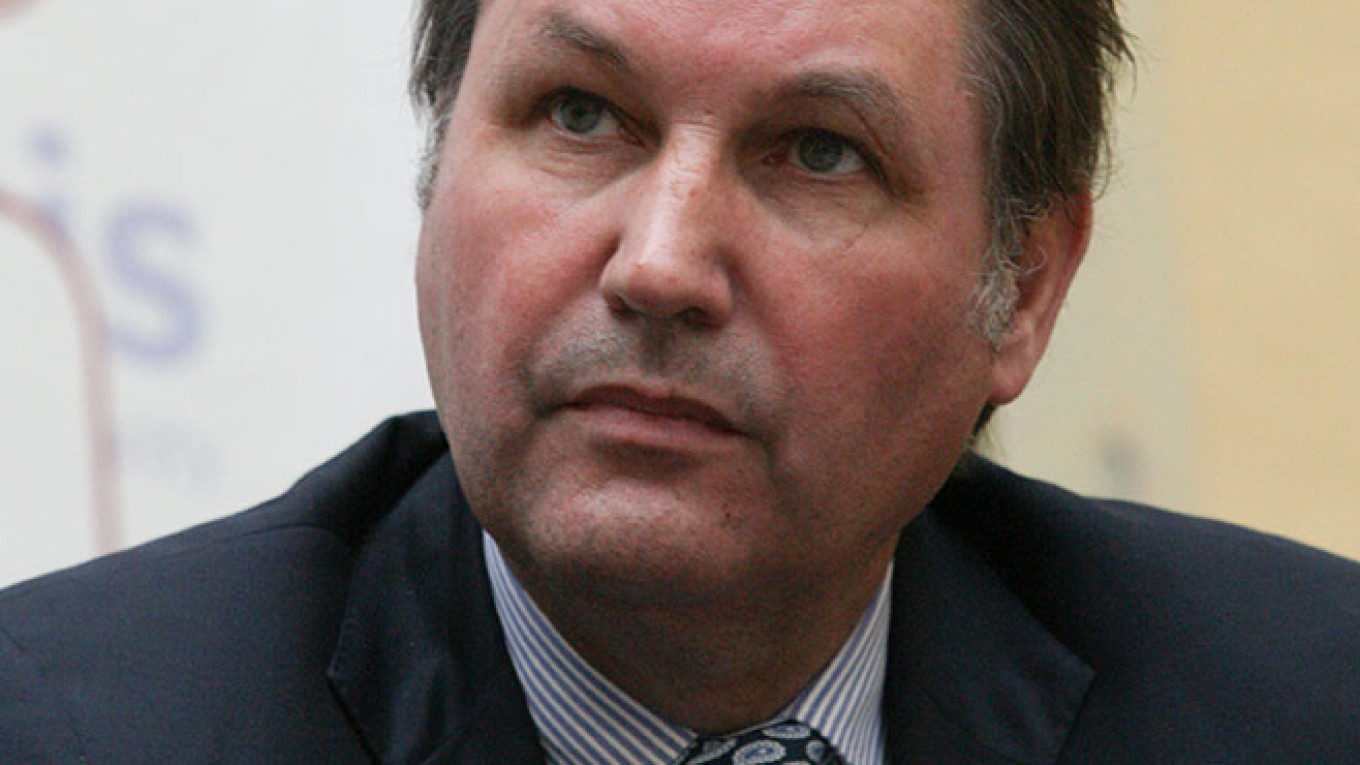 Galina Gubchenko
Galina GubchenkoDuring his two-year stint as head of AvtoVAZ, Russia's largest automaker, Bo Andersson was at the car factory day and night. He was known for starting his workdays at 6:30 a.m. A former Swedish army Special Forces major and former General Motors senior manager, Andersson made lightning-fast decisions, demanded their immediate execution and dealt with unsatisfactory employees promptly. He gave walking papers to three company vice presidents and two dozen top managers last year alone.
It was a dizzyingly radical pace of change for Russian industry.
Now Andersson finds himself dismissed. His employer, Alliance Rostec Auto BV — that owns 74.5 percent of AvtoVAZ along with Renault-Nissan and Russian state-owned corporation Rostec — is terminating his contract. Andersson is blamed for huge losses that the company had accrued by late 2015 — 74 billion rubles ($1 billion), as compared to losses of 25.4 billion rubles ($686 million) in 2014 — and for conducting an excessively strict personnel policy. During his two years at the helm, Andersson slashed the number of AvtoVAZ employees from 70,000 to just 44,000.
In fact, Andersson was long doomed, having managed to incense just about everyone — Russian officials, foreign managers and his own employees.
At the same time, nobody questions that Bo Andersson achieved great success. Before coming to work for AvtoVAZ, he had performed the impossible as head of the Russian GAZ Group — Russia's largest manufacturer of mid-size trucks and buses — by installing modern assembly line production facilities to replace the aging and vastly outdated Soviet factory he inherited.
Andersson immediately introduced several significant modifications to the AvtoVAZ lineup. What's more, they appeared exactly on deadline, an unprecedented achievement at the AvtoVAZ plant. He managed to put a system in place that made it possible to go from concept car to assembly line production in only 1.5-2 years — the world standard
But the main thing this foreign director managed to achieve as the head of a Russian automaker was to dramatically improve quality. To achieve it, he made some very controversial decisions, such as the move to produce the Vesta not, as expected, at the company's Togliatti plant, but at its factory in Izhevsk where, despite costlier logistics, Andersson felt the manufacturing quality was higher. Using the same logic, he replaced Russian with foreign suppliers.
As a result, Andersson found himself embroiled in a war with suppliers from whom he demanded high quality components, low prices and a willingness to accept delayed payments. The AvtoVAZ conveyor stopped several times when the stubborn Swede personally sent large batches of parts back to their suppliers because of poor quality.
All of this could not but impinge on his career given the bizarre nature of the Russian system that combines a planned economy with free market capitalism. At times, the situation became absurd. For example, when the director of a crew of disabled workers phoned in during President Vladimir Putin's live call-in show to complain that the new AvtoVAZ chief regularly rejected their products, the head of state ordered the private enterprise to sign a new contract with the supplier.
Company losses are the ostensible reason that Andersson's contract was terminated — even though much of that debt accrued before he took the job.
Andersson was shown the door because he could not and would not reach agreement with his Russian partners, especially the most important ones. For example, Rostec, the main Russian shareholder in AvtoVAZ, owns a wide range of auto parts suppliers "in conjunction with" its subsidiary company United Automotive Technologies. And those companies are very unhappy with the strict demands placed on them by their primary buyer.
The last straw was apparently Andersson's decision in February to implement a four-day work week at the plant and cut salaries by 20 percent. He had no choice: sales continued to plummet and the company had to cut costs.
The next AvtoVAZ chief will have to accomplish the same goal as his predecessor: bring new models to market while constantly improving quality. Only now he will have the added burden of replacing foreign suppliers with domestic ones without compromising on quality and raising worker salaries without cutting staff. And he'll have to do all of that amidst an economic crisis and shrinking demand.
It is a job for a Russian fairytale hero — anyone else would fail. But then, Russia's planned-capitalist economy tends to follow its own peculiar logic.
Igor Morzharetto is a partner of Autostat analytical agency.
A Message from The Moscow Times:
Dear readers,
We are facing unprecedented challenges. Russia's Prosecutor General's Office has designated The Moscow Times as an "undesirable" organization, criminalizing our work and putting our staff at risk of prosecution. This follows our earlier unjust labeling as a "foreign agent."
These actions are direct attempts to silence independent journalism in Russia. The authorities claim our work "discredits the decisions of the Russian leadership." We see things differently: we strive to provide accurate, unbiased reporting on Russia.
We, the journalists of The Moscow Times, refuse to be silenced. But to continue our work, we need your help.
Your support, no matter how small, makes a world of difference. If you can, please support us monthly starting from just $2. It's quick to set up, and every contribution makes a significant impact.
By supporting The Moscow Times, you're defending open, independent journalism in the face of repression. Thank you for standing with us.
Remind me later.






